Africa International Film Festival (AFRIFF 2025) continued its exciting run with two unforgettable midweek days that showcased African creativity through film, music, technology, and fashion. From screenings to panel sessions, Days 3 and 4 reaffirmed AFRIFF’s place as Africa’s leading hub for cultural and creative expression.

Day 3: Film, Music, and the Business of Storytelling
On Tuesday, November 4, film, music, and business innovation took center stage. The Landmark Centre, Twin Waters, and The Palms, Lekki, were alive with screenings, masterclasses, and conversations that bridged art and enterprise.
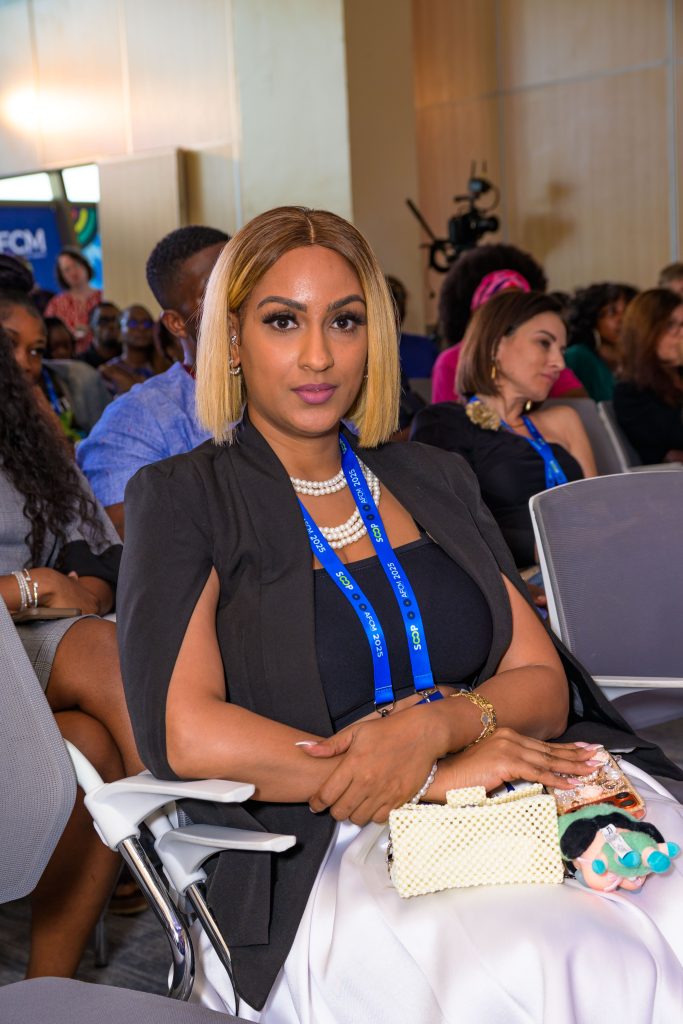
Audiences were deeply moved by short films like Mr. Rogers and Njem. Meanwhile, Son of the Soil attracted a star-studded audience for its glamorous red-carpet premiere.
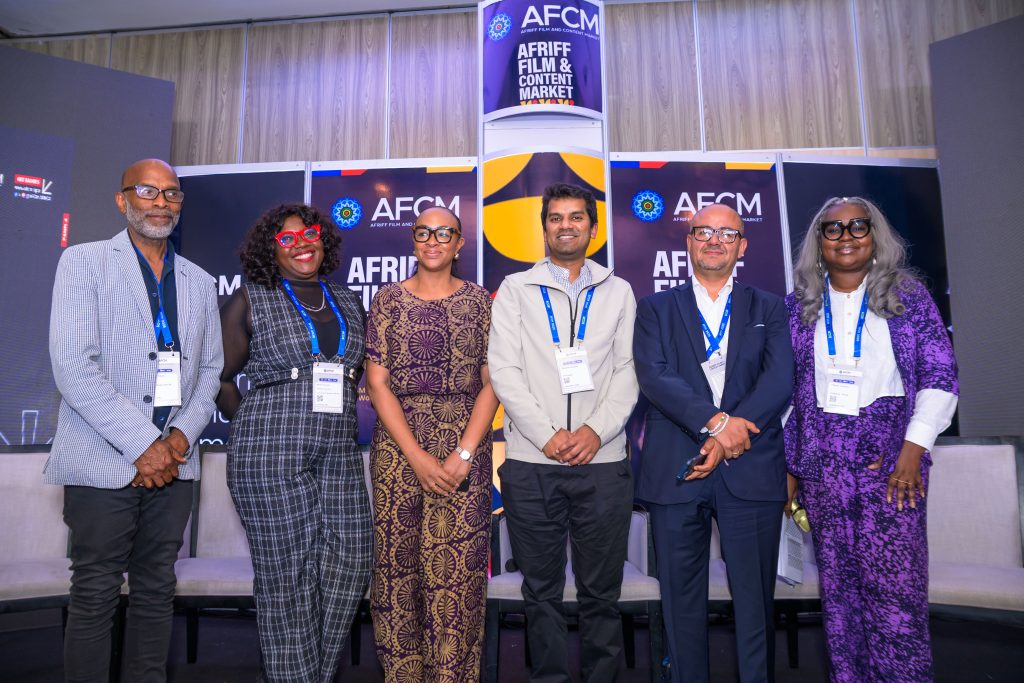
At Twin Waters, discussions explored the business of storytelling and cross-cultural film partnerships. In Frame by Frame: Forging German–African Film Production Partnerships, speakers such as Sandrina Koppitz, Peter Geidel, Theodor Leipert, and Ajayi Oloruntimileyin highlighted new co-production models and government-backed funding for African cinema.
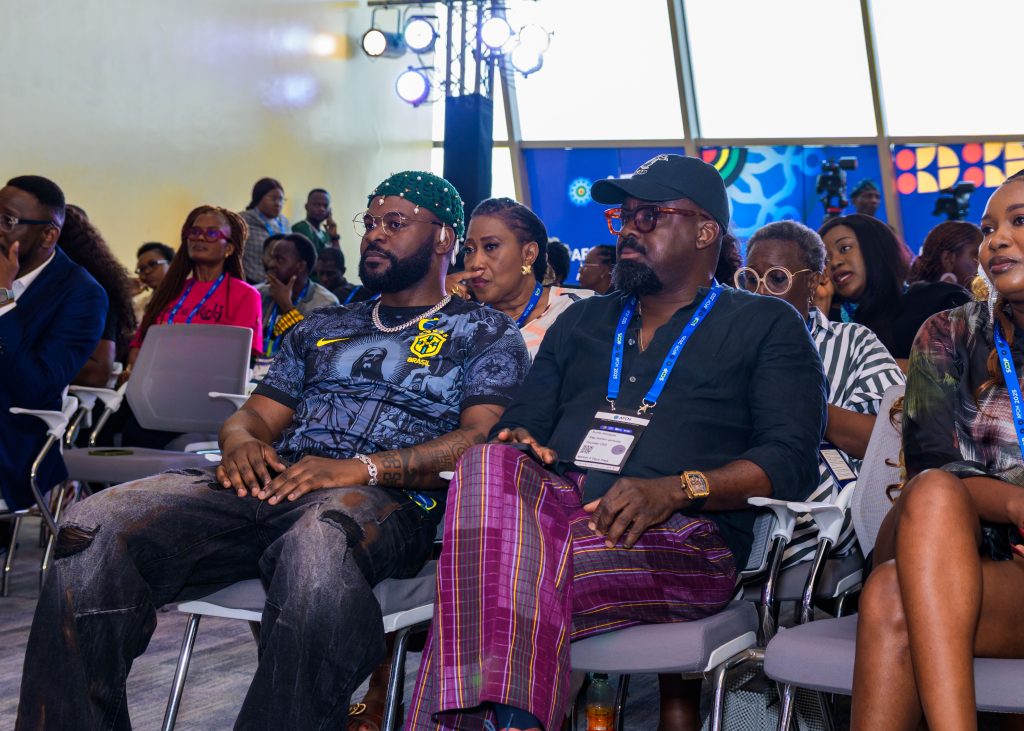
In another session, Licensing & Synchronization: The Business of Music in Film, Cobhams Asuquo, Aibee Abidoye, and Edi Lawani emphasized that structure and collaboration are key to building stronger connections between film and Afrobeats.
The Behavior Shift: Influencing Change through Narrative featured Uche Pedro, Wame Jallow, and Johanna Blakley. They explored how storytelling can drive social inclusion and cultural awareness across Africa.
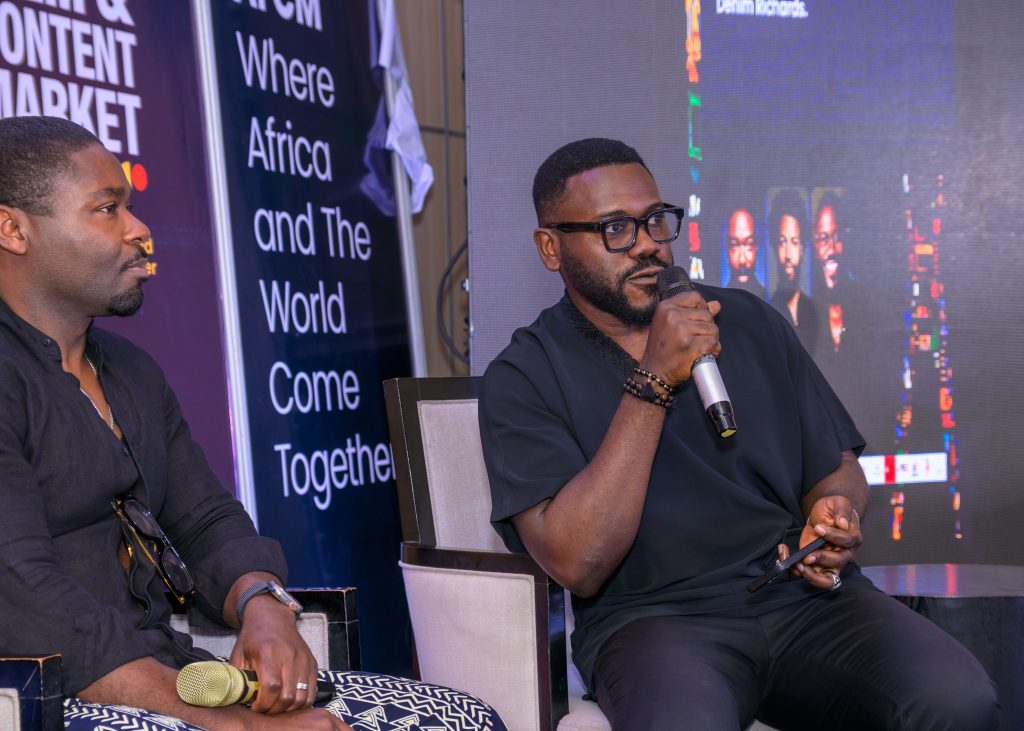
Hands-on masterclasses led by Bimbo Akintola inspired young actors and filmmakers. Later, Global Pathways for African Actors—moderated by Deyemi Okanlawon and featuring David Oyelowo—delivered a powerful moment.
Oyelowo inspired the audience, saying:
“The only brand you need is excellence — it’s the greatest weapon against prejudice.”
The session ended with a standing ovation, capturing AFRIFF’s mission to empower African creatives for global recognition.
Day 4: Technology, Fashion, and the Future of African Storytelling
On Wednesday, November 5, the focus shifted to technology, fashion, and digital content. The day showcased how innovation continues to shape the future of African storytelling.
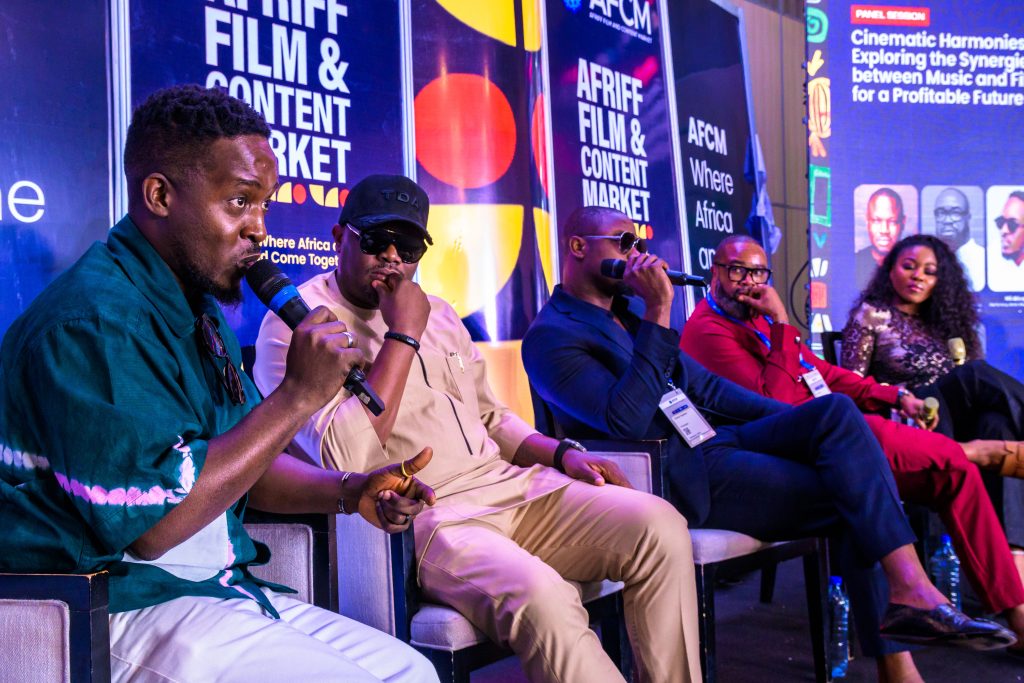
In The Future is Animated, Ferdy Adimefe (Magic Carpet Studio), Sileola Ibironke (Virtual Africa Animation), and Omotayo Otiloju (Slick City Media) discussed AI’s impact on animation. Adimefe urged creators to embrace technology rather than resist it, saying:
“Don’t fear AI — train with it. AI is the tool, not the soul.”
Cinematic Harmonies featured Dr. Sid, M.I. Abaga, Paul Okeugo, and Charles Opaleke, who examined the relationship between music and film. Dr. Sid explained how music amplifies emotion in storytelling. In contrast, Opaleke emphasized treating soundtracks as both creative and commercial assets.
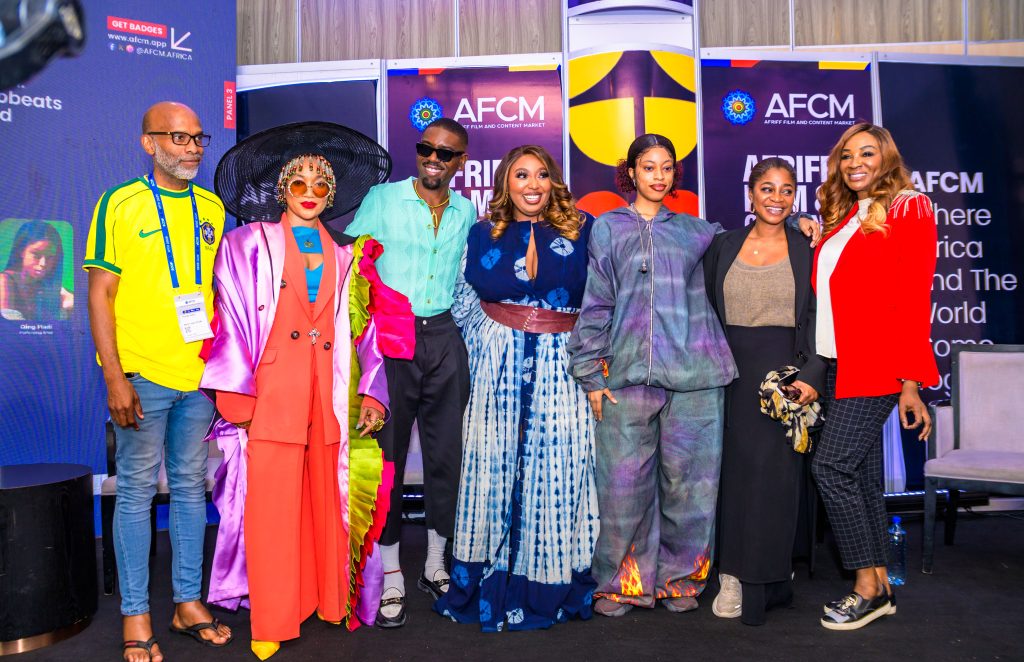
Fashion also took center stage at Fashion Meets Film, moderated by Latasha Ngwube. The session featured Folake Folarin-Coker, Ugo Mozie, Qing Madi, and Jennifer Oseh, who celebrated fashion as a storytelling tool. Mozie noted:
“The future of African fashion is storytelling.”
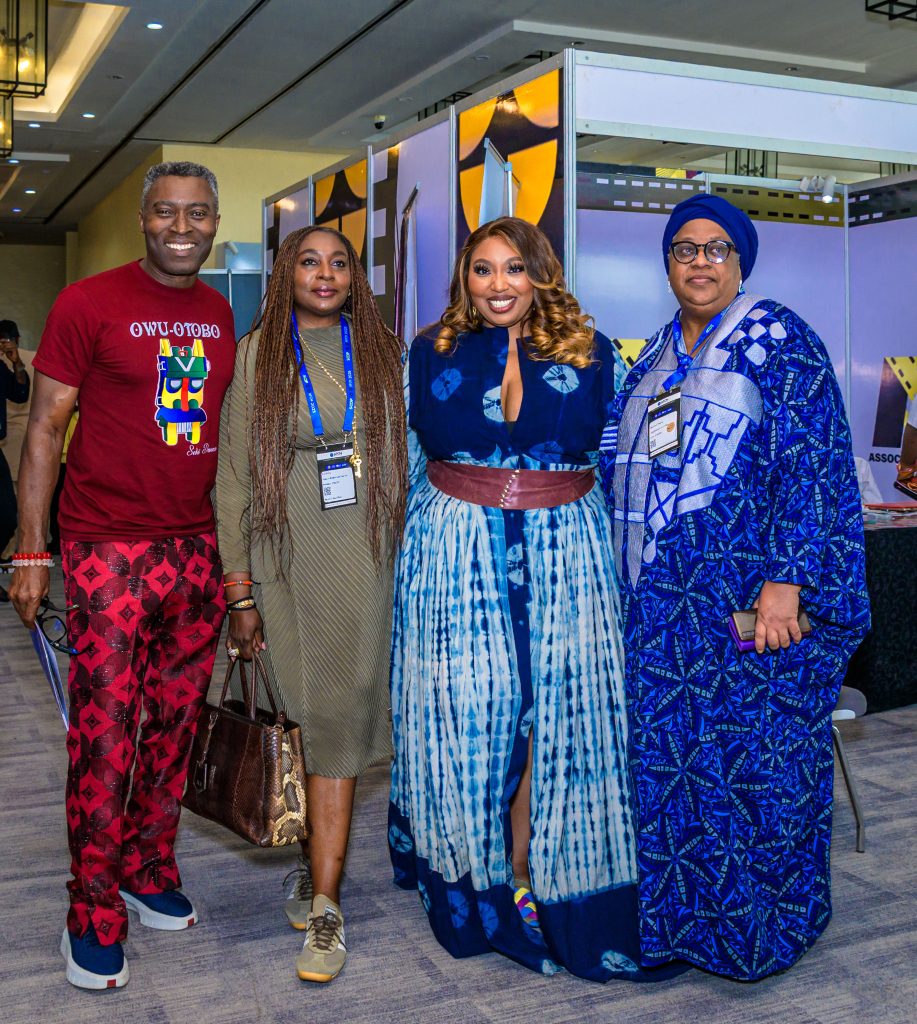
Panelists also called for collaboration and structure to strengthen the growing fashion–film ecosystem.
Finally, Quality vs. Quantity: Raising the Standard of Online Content brought together Ruth Kadiri, Lilian Afegbai, Sandra Okunzuwa, Eddie Watson, and Chinylove. The discussion highlighted the need for authenticity, creative risks, and high-quality digital production to elevate African content globally.
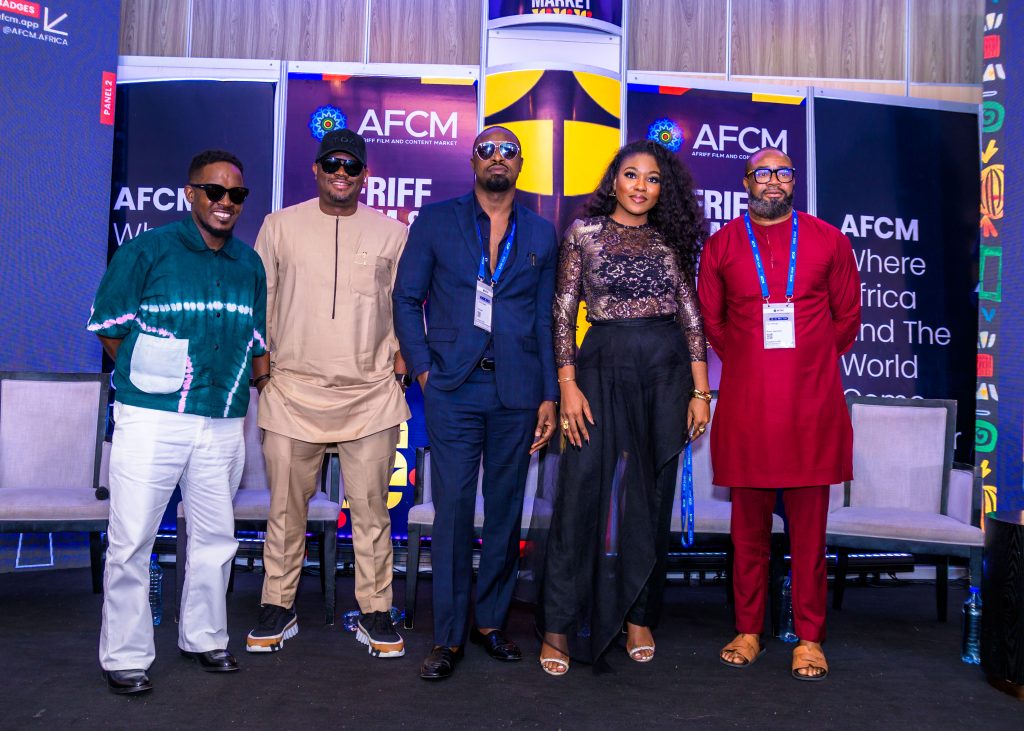
Africa International Film Festival: Building Africa’s Creative Future
Across both days, the 14th AFRIFF 2025 showcased how film, music, fashion, and technology are driving Africa’s creative revolution. The festival continues to unite the continent’s brightest talents, proving that African creativity is locally inspired yet globally ambitious.
As AFRIFF continues, it stands as a beacon of innovation, collaboration, and storytelling excellence, empowering African voices to shape the future of global culture — one frame, one sound, one story at a time.











